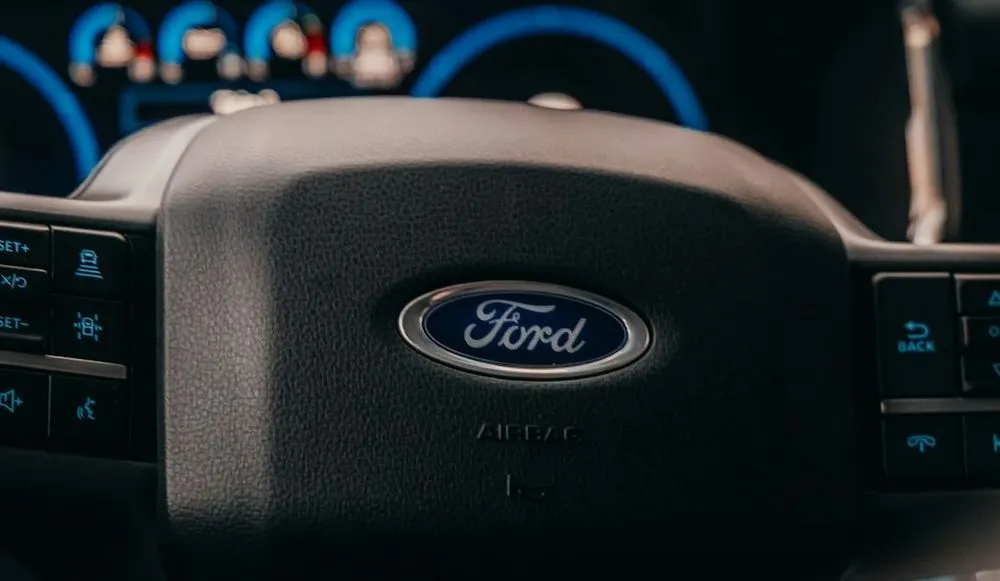Ford Patents “Eavesdropping” Tech to Customize In-Car Advertising
Ford Motor Company is seeking a patent for technology that could personalize in-car advertising by listening to conversations among vehicle occupants. This technology would also analyze the car’s location history and other data, according to a patent application published late last month.
“In one example, the controller may monitor user dialogue to detect when individuals are in a conversation,” the patent application states. “The conversations can be parsed for keywords or phrases that may indicate where the occupants are traveling to.”
The system, labeled “in-vehicle advertisement presentation,” would gather data on a car’s location, speed, road type, and traffic conditions. Moreover, it would predict routes, speeds, and destinations to tailor advertisements to drivers. The application explains that the system could pull data from “audio signals within the vehicle and/or historical user data, selecting a number of the advertisements to present to the user during the trip.”
By monitoring conversations, the system could determine the optimal timing for audio or visual ads, delivering them through the vehicle’s human-machine interface (HMI).
“Such systems and methods provide maximum opportunity for ad-based monetization,” the application said. “These systems and methods may use knowledge of vehicle destination prediction to provide more relevant advertisements, for example, if a user is going grocery shopping, merchandise purchasing, etc.”
The patent application, however, does not address how collected data would be protected.

Ford insists that the technology would primarily rely on software, requiring no new hardware. The application was filed in February and published on August 29. Motor1.com was the first to report on the application’s contents.
Ford has defended the patent application, stating:
“Submitting patent applications is a normal part of any strong business as the process protects new ideas and helps us build a robust portfolio of intellectual property,” a statement from a Ford spokesperson said. “The ideas described within a patent application should not be viewed as an indication of our business or product plans.”
In a follow-up statement, Ford emphasized, “will always put the customer first in the decision-making behind the development and marketing of new products and services.”
The system could also utilize data from third-party applications or screen input preferences to predict the number of ads a driver should receive. Furthermore, factors such as the type of trip (e.g., a long drive versus visiting a medical facility) would be considered by the system.
This is not Ford’s only controversial patent application. In July, a separate patent proposed technology that would monitor the speed of nearby cars, photograph them, and send the information to police. This idea drew criticism from privacy advocates and is still under review by the U.S. Patent and Trademark Office. That application highlighted the difficulty police face in identifying speeding cars and suggested “systems and methods that assist traffic police and/or other law enforcement officers [to] perform such tasks.”
Ford also withdrew another controversial patent application last October, after facing criticism for its plans to commandeer vehicles from owners with late payments, allowing for self-repossessions. That patent application described how self-driving cars could automatically be directed to repossession lots, while standard vehicle lenders could permanently lock cars and disable features like steering, brakes, and air conditioning to pressure delinquent drivers.
According to Experian, Ford, the third-largest car company in the American market, secured 12% of new vehicle registrations last year.
Editor’s Note: Story updated at 11:20 a.m. Eastern on September 10 with an additional statement from Ford.



